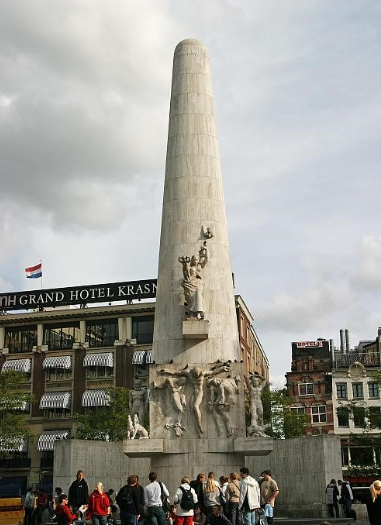President Yoon Seok-yeol and First Lady Kim Kun-hee, who are on a state visit to the Netherlands, attended the official welcome ceremony at Dam Square in Amsterdam on the morning of the 12th (local time) and then moved to the War Memorial to lay flowers.
On this day, the Taegeukgi and Dutch flags were raised in Dam Square to begin the official welcome ceremony. The Dutch military band and honor guard of about 280 people lined up to announce the start of the official welcome ceremony. The Dutch side fired a 21-gun salute as the highest courtesy to a foreign leader. Afterwards, the national anthem and the Dutch national anthem were played one after another. Afterwards, President Yoon inspected the honor guard along with King Willem-Alexander. Next, President Yoon and his wife approached the welcoming group of children attending a Korean language school and greeted them, and the welcoming group waved Korean and Dutch flags.
President Yoon and his wife laid a wreath at the war memorial after the official welcoming ceremony. President Yoon and his wife crossed Dam Square first and moved to the monument, followed by Dutch Prime Minister Mark Rutte and Amsterdam Mayor Femke Halsma. On the road leading from the square to the monument, flag troopers, military bands, and honor guards lined up on both sides. In front of the war memorial, a wreath was placed with the words ‘President of the Republic of Korea Yoon Seok-yeol’ written in Korean and English. President Yoon and his wife laid flowers and said a moment of silence, then moved to the royal palace and had a friendly luncheon with the king and his wife.
 War monument located in Dam Square, Netherlands. It was built to commemorate the fallen in World War II. Photo = doopedia
War monument located in Dam Square, Netherlands. It was built to commemorate the fallen in World War II. Photo = doopediaWhen a foreign leader visits the Netherlands as a state guest, it is customary for a wreath-laying ceremony at the war memorial to be included in the official itinerary. The war memorial was erected to commemorate the victims of World War II. Construction began in 1952 and was completed on May 4, 1956. It is made of limestone and is 22m high.
The monument has four sculptures of men chained in chains, symbolizing the pain of war, located in the center, and two sculptures of men symbolizing resistance, located on the left and right. Above the male sculptures is a female sculpture holding a baby. This female sculpture symbolizes victory, peace, and new birth.
At the bottom of the monument, there is a sentence written in Latin that means, ‘This is the place where the heart of the country is, a monument kept in the hearts of the citizens. Let them see God’s star.’ Behind the monument stands a semicircular wall. On the back of the wall are 12 boxes containing soil from the execution sites and war memorial cemeteries of 11 Dutch provinces and Indonesia during World War II. Indonesia was a Dutch colony until independence in 1949.
Lee Ye-ji,
Source: Donga
Mark Jones is a world traveler and journalist for News Rebeat. With a curious mind and a love of adventure, Mark brings a unique perspective to the latest global events and provides in-depth and thought-provoking coverage of the world at large.